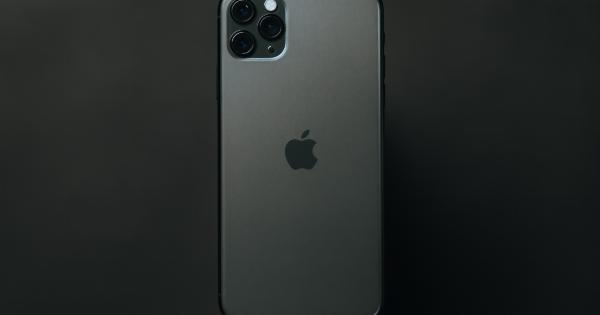In today’s digital age, smartphones have become an integral part of our daily lives. They keep us connected, informed, and entertained. However, there is a fine line between using your smartphone as a helpful tool and becoming controlled by it.
Many people are unaware of the negative impact excessive smartphone use can have on their mental, emotional, and physical well-being.
1. You Constantly Check Your Phone
One of the first warning signs that your smartphone is controlling your life is the constant need to check it.
Whether you’re waiting for a notification, scrolling through social media, or mindlessly browsing the internet, the urge to constantly reach for your phone can indicate an unhealthy dependency. This constant checking can disrupt your daily activities, affecting your productivity and personal relationships.
2. Your Phone Use Interferes with Sleep
A clear sign that your smartphone is controlling your life is when it starts to interfere with your sleep patterns.
Do you find yourself staying up late, engrossed in your phone’s screen, browsing apps, or watching videos? The blue light emitted by smartphones can disrupt your natural sleep cycle, making it difficult to fall asleep and negatively impacting the quality of your rest. Lack of sleep can lead to fatigue, irritability, and a decline in overall cognitive function.
3. You Prioritize Your Phone Over Real-life Interactions
If you consistently prioritize your phone over real-life interactions with family, friends, or colleagues, it’s a red flag that your smartphone is controlling your life.
Constantly checking your phone during conversations or important moments can be rude and disrespectful to those around you. It also hinders your ability to connect with others on a deeper level and establishes a barrier between you and the real world.
4. You Experience Anxiety or Distress Without Your Phone
Feeling anxious or distressed when you’re away from your smartphone is another warning sign that it’s controlling your life. The fear of missing out (FOMO) or the need to be constantly available can cause significant emotional distress.
This attachment to your phone can prevent you from fully engaging in activities or enjoying moments of solitude. It’s essential to understand that a healthy balance can be achieved by disconnecting from your device for periods of time.
5. Your Physical Health Is Neglected
When your smartphone takes precedence over your physical health, it’s a clear indication that it’s controlling your life.
Excessive smartphone use often leads to a sedentary lifestyle, neglecting physical activities necessary for maintaining good health. Spending long hours browsing or playing games on your phone can also contribute to poor posture, eye strain, and headaches. It’s crucial to prioritize your physical well-being over mindlessly staring at your screen.
Reclaiming Control and Achieving Balance
If you’ve identified with any of the warning signs mentioned above, it’s time to regain control over your smartphone usage. Here are a few actionable steps you can take:.
1. Set Boundaries
Establish clear boundaries for your smartphone use by designating specific times when you will check your phone. Avoid using it during meals, social gatherings, or important tasks. By setting limits, you can prevent it from controlling your every moment.
2. Create Phone-Free Zones
Designate areas in your home where smartphones are not allowed, such as the dining table, bedroom, or workspace. These phone-free zones will encourage you to engage in face-to-face interactions, focus on work, or promote restful sleep.
3. Use Apps to Limit Screen Time
Take advantage of various apps available that help limit your smartphone usage. These apps can track your screen time, set usage limits, and even lock specific apps during designated periods.
Using technology to regulate your technology usage can be an effective strategy.
4. Engage in Hobbies and Physical Activities
Rediscover the joy of engaging in hobbies or physical activities that don’t involve your smartphone. Explore new hobbies, spend time in nature, exercise, or pursue creative outlets.
These activities will not only divert your attention from your phone but also contribute to your overall well-being.
5. Practice Mindfulness
Mindfulness exercises, such as meditation or deep breathing techniques, can help you become more aware of your smartphone dependency.
When you catch yourself reaching for your phone out of habit, pause, take a deep breath, and reassess if it’s necessary. Mindfulness can help you break free from the unconscious control your smartphone has over you.
Conclusion
While smartphones offer numerous benefits, it’s crucial to maintain a healthy balance and avoid falling into the trap of excessive usage.
By recognizing and addressing the warning signs mentioned above, you can regain control over your life and foster more meaningful connections with the world around you. Remember, your smartphone should serve as a useful tool, not as the master of your existence.



























